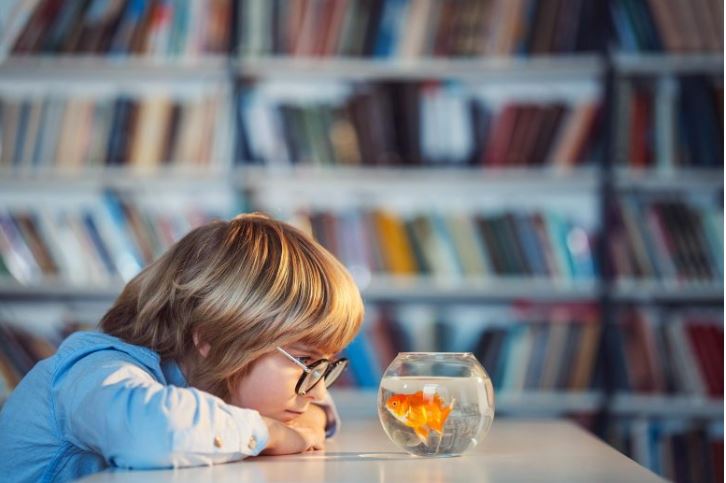


 12:15:7
12:15:7  2025-08-30
2025-08-30  1701
1701

For years, scientists have underestimated the intelligence of fish, often relying on lab-based studies that don’t reflect how these animals behave in their natural environments. But a team from Wageningen University & Research has developed a simple, low-cost tool that lets researchers study fish learning directly in rivers, lakes, and streams. The results are eye-opening.
Their results were recently published in the scientific journal Methods in Ecology and Evolution.
Testing cognitive skills in natural settings
Fish are much smarter than we once thought, but until now, most studies of their intelligence have taken place in artificial lab settings. While labs help scientists control conditions and explore how fish think, the unnatural environment can change how fish behave and learn.
To get a clearer picture, researchers Catarina Vila-Pouca and Alexander Kotrschal created a practical tool: a simple feeding board that lets fish push aside discs to reach food, without the need for capture or confinement.
Autonomous learning observed
“We sought a solution that could be deployed anywhere, from shallow ponds to fast-flowing rivers,” Catarina Vila-Pouca explained. “By enabling fish to make independent choices, we gain a far more accurate understanding of their learning processes.”
Explorers and opportunists among fish
The apparatus was tested on guppies (Poecilia reticulata) in Trinidad and ninespine sticklebacks (Pungitius pungitius) in the Netherlands. The fish demonstrated progressive improvements in selecting the correct discs — a performance consistent with results previously observed in laboratory conditions.
The study also revealed intriguing social strategies: while some individuals actively discovered food sources (‘explorers’), others benefited from their efforts (‘opportunists’).
Advancing understanding of fish intelligence
According to Alexander Kotrschal, the new methodology offers a valuable window into fish cognition: “By studying animals within their natural habitats, we are better able to observe authentic behavior. This not only enhances our understanding of cognitive evolution but also has implications for conservation and animal welfare.”
Versatile and accessible
The device is inexpensive, easy to modify for different fish species, and suitable for studying social learning and memory. The researchers hope this simple innovation will significantly advance the field of fish cognition research.
Reality Of Islam |
|

Labor short

A new ultra

Batteries p
 9:3:43
9:3:43
 2018-11-05
2018-11-05
10 benefits of Marriage in Islam
 7:5:22
7:5:22
 2019-04-08
2019-04-08
benefits of reciting surat yunus, hud &
 9:45:7
9:45:7
 2018-12-24
2018-12-24
advantages & disadvantages of divorce
 11:35:12
11:35:12
 2018-06-10
2018-06-10
 6:0:51
6:0:51
 2018-10-16
2018-10-16
allah will not answer all your prayers
 6:56:28
6:56:28
 2022-01-01
2022-01-01
 7:59:14
7:59:14
 2018-06-21
2018-06-21
 2:11:12
2:11:12
 2022-10-15
2022-10-15
 6:14:3
6:14:3
 2023-01-18
2023-01-18
 8:25:12
8:25:12
 2022-03-09
2022-03-09
 8:15:37
8:15:37
 2023-02-16
2023-02-16
 1:16:44
1:16:44
 2018-05-14
2018-05-14
 5:41:46
5:41:46
 2023-03-18
2023-03-18
| LATEST |